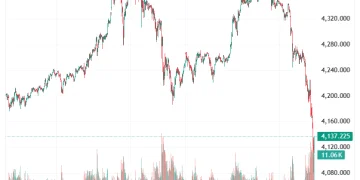Textiles and Garments Sector to Benefit from Long-Term Financing, Technical Support – DBG CEO
The Development Bank Ghana (DBG), in collaboration with the Association of Ghana Industries (AGI), has outlined ambitious plans to revitalise the country’s textiles and garments industry through sustained policy dialogue, targeted financing, and strategic partnerships.
Speaking to the media following a policy dialogue forum organised by the two institutions, Chief Executive Officer of DBG, Dr Randolph Nsor-Ambala, underscored the long-term objective of the forum, stating that its ultimate goal is to “unleash the full potential of the private sector” and strategically position it to drive Ghana’s transformation agenda.
“The outcome we seek is a resurgence in the textiles industry improving productivity, sustainability, and inclusive growth across the entire value chain. We expect the sector to not only generate more jobs, especially for women and vulnerable groups, but also to become a key export earner and a strong driver of import substitution,” Dr Nsor-Ambala stated.
According to him, the current engagement is expected to yield a robust industry action plan underpinned by long-term lending and hands-on technical assistance. He further noted that while DBG has extended some level of support to the textiles industry, the impact has been constrained due to limited appreciation of the sector by Participating Financial Institutions (PFIs)—key intermediaries in DBG’s financing framework.
“Our go-to-market strategy hinges on PFIs fully anchoring into what we are trying to do. Unfortunately, many have yet to understand the dynamics of the textiles and garments sector. This is why we are undertaking a comprehensive value chain study to co-create innovative financial products that can better meet the needs of industry players,” he said.
The DBG boss emphasised that beyond financing, the Bank is focused on offering technical assistance and fostering business linkages within the sector. He described DBG’s role as that of a “thought leader,” advocating for the industry by translating its concerns into policy actions backed by empirical evidence.
“As an organisation aligned with the country’s long-term development agenda, our work is structured around three core pillars—financing, technical assistance, and partnerships. We’re looking at investigating the entire value chain to collectively understand the bottlenecks and opportunities within the sector,” he noted.
He pointed out that many of the structural challenges in the sector—including rigid supply chains—contribute to cost inefficiencies and poor competitiveness. DBG, he said, is keen on addressing these through flexible partnership models that link producers, suppliers, exporters and other actors along the value chain.
The policy dialogue forum, which brought together stakeholders from government, finance, and industry, forms part of DBG’s broader initiative to support SMEs and PFIs operating within the textiles and garments space. The Bank and AGI plan to distill insights from the forum into a comprehensive policy brief, containing draft regulations, enforcement mechanisms and investment incentives to accelerate growth in the sector.
The industry action plan, once finalised, is expected to be a key blueprint for transforming the textiles and garments industry into a sustainable, high-growth sector capable of significantly contributing to Ghana’s industrialisation and job creation efforts.








